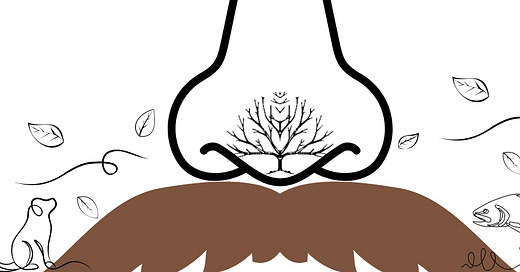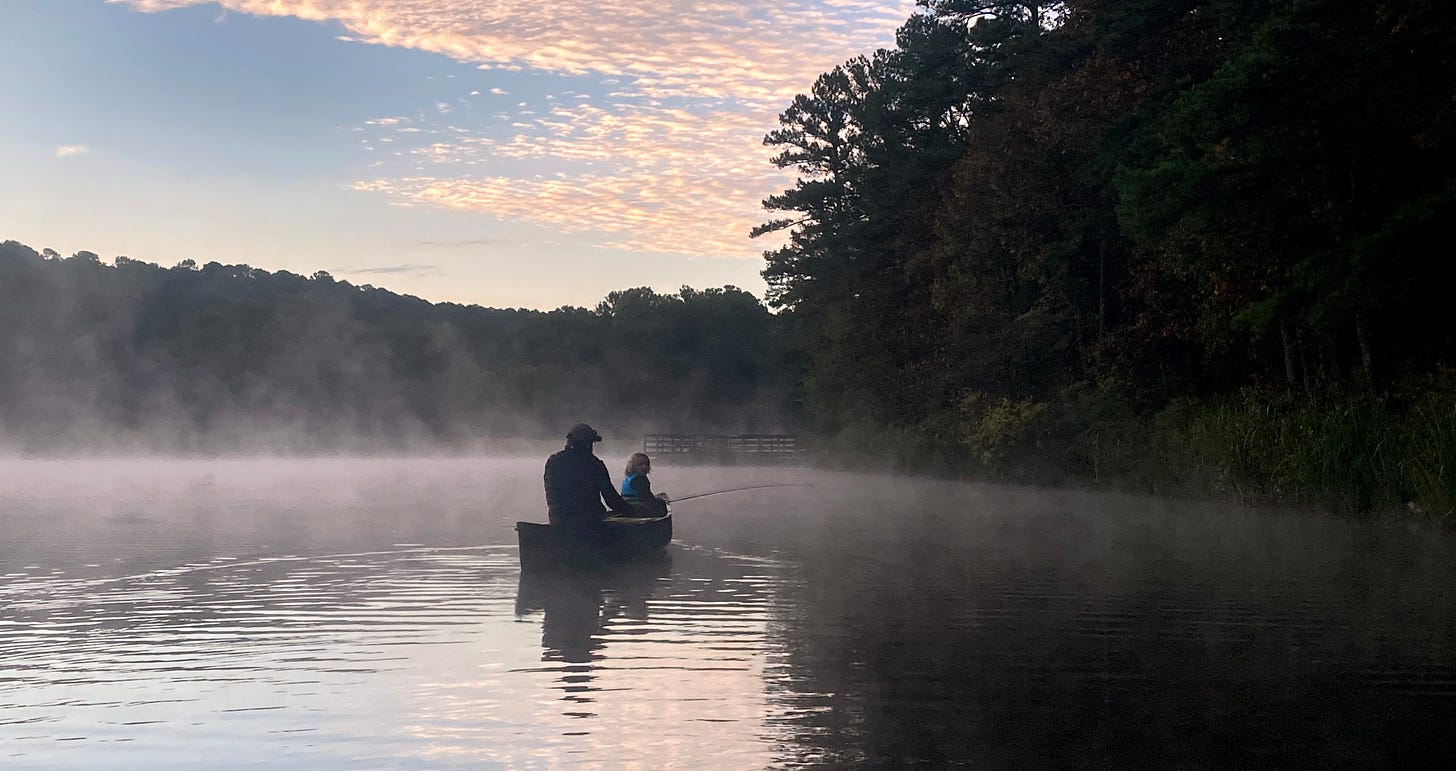Absence makes the appreciation grow stronger
Take time to smell the flowers in 2023, and remember to appreciate it
It was what I call a wool-blanket-and-recliner afternoon.
Cocooned and in unending COVID-dulled fatigue, my soul waited on the comfort of a venison roast, braised and growing tender, steeped in a holy trinity, the potatoes, onion quarters and carrots added for the final minutes before dinner was served.
Suddenly a realization hit me. I turned to my wife and said, “Hey! I smell … something. I think. Kind of. I think.”
According to the latest Centers for Disease Control bulletins, I’m one of a relative few who can include loss of smell along with other miseries of the latest variant. It arrived Christmas Day and is lingering a little too far into 2023; way too far in the exhaustion, sinus pain, and loss-of-smell categories thank you very much.
I noticed my lost sense of smell the morning after Christmas. I took a shower and couldn’t smell the soap or shampoo, couldn’t pick up a smell off my deodorant stick or toothpaste. I’ve had sinus infections and reduced sense of smell before, but nothing like—absolutely nothing. It’s been freaky.
My sense of smell is trying to come back, though, I think, it’s just a little off-kilter. It’s something I’m missing much more than I’d imagine I might, especially when I step out the back door and inhale. The scent of my environment is missed. Prior to the past couple of weeks, it was a sense I took for granted. Stepping out the back door in the morning and breathing in the air is, unconsciously, a day-starter.
A subject of little study
Overseas, a pair of scientists with the Durrell Institute of Conservation and Ecology at the University of Kent put some thought into this realm in 2019.
Published in July 2022, Phoebe R. Bentley and Jessica C. Fisher wrote in their study Nature, Smells, and Human Wellbeing: “Here, we examine how smells experienced in woodlands contribute to wellbeing across four seasons. We show that smells are associated with multiple wellbeing domains, both positively and negatively. They are linked to memories, and specific ecological characteristics and processes over space/time. By making the link between the spatiotemporal variability in biodiversity and wellbeing explicit, we unearth a new line of enquiry (sic). Overall, the multisensory experience must be considered by researchers, practitioners, policy-makers and planners looking to improve wellbeing through nature.”
Our home environment warms with the smells of a venison roast in the oven. I could feel the warmth and humidity in the kitchen that wool-blanket day, but what was in my nose was a distraction. I had to think on it, and finally came away with it being something similar to the smell of a rinsed-out sardine can.
Bear with me, here. Back when sardines were still cheap, I ate a lot of sardines on toast for a quick lunch (if my wife wasn’t home). Tossing a sardine tin in the trash is just nasty, so it needs a good rinse with hot water, and a quick sniff, before the toss. A tin passed the sniff test if it still had a lightly fishy, metallic-tinted, smell. That’s the closest parallel I could imagine to what I sensed in the kitchen that day.
Talk about spoiling the experience of a beautiful venison roast and vegetables.
What was in the still, night air last evening when I looked up through the pecan trees to eye the full wolf moon? In our suburban setting, was it a night with little activity that let clear natural scents flow, or would I have smelled a neighbor’s barbeque at work?
Down by the slough at dawn, where the beavers have found new trees to target, where was the hint of castor, or the sweet winter smell of decaying vegetation?
How many of us pull fond memories of days past with the opening of a bottle of Hoppe’s No. 9, blackpowder smoke, or look forward to a Saturday that will end with pruned fingers fresh with the smell of many fish caught-and-released?
Every activity has its own scent, some more pleasant than others. We capture sights and places in photographs, but the scent of a perfect morning has to live in our memories.
Smell the good, sniff the bad
A wet Labrador in the duck blind, chest waders used daily and in need a full and complete drying, the first scent as a tackle box is cracked open; in context, they are expected comforts, but might be unwelcome elsewhere. “Tacklebox” would not make a popular scent for a new body wash.
Grassfire smoke on the wind of a late winter’s day, remnants of a rainshower evaporting under summer’s heat, the air on cool wind whipping a high ridge at dawn that can be described only as “clean;” each sets tone for a day and place but also tickles memories of times and places past.
That nature plays an integral role in promoting human health and wellbeing is well documented. Yet, as Bentley and Fischer note, “there remains a paucity of evidence investigating precisely which attributes of nature could affect human wellbeing and why.”
Across four seasons, the researchers took a diverse group of 194 people to workshops near Nottingham, England; Sherwood Forest (of course) in the morning and Clumber Park in the afternoon. The results and comments of participants throughout the study are not surprising to someone who has spent a life outdoors, but they tickled my brain nonetheless.
The researchers noted: “We found smells affected multiple domains of wellbeing with physical wellbeing discussed most frequently, particularly in relation to relaxation, comfort, and rejuvenation. Even absence of smell was perceived to improve physical wellbeing, providing a cleansing service, removing the pollution and unwanted smells associated with urban areas, therefore enabling relaxation.”
When people talk about “fresh air” they think of it specifically as lacking any scent at all, especially compared to the air in urban settings. I beg to differ. A winter’s day on a high, snow-covered ridge hundreds of miles from humanity has its own scent, one I believe is unique to each individual—and unforgettable.
That the researchers referenced past studies that linked olfactory loss with depression also didn’t surprise me, not after the past couple weeks.
Many who lost their sense of smell with Covid say theirs came back eventually, some sooner than others. That I’m already catching hints of scent, even if it’s off-kilter—tells me mine will return soon enough, likely whenever my sinuses feel normal again.
Then I’ll step out on my back porch, breathe deep, and enjoy one of our most precious of outdoor senses and start off the day with renewed appreciation.





